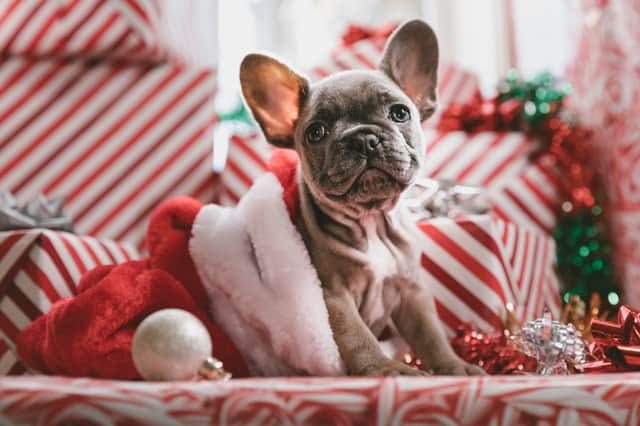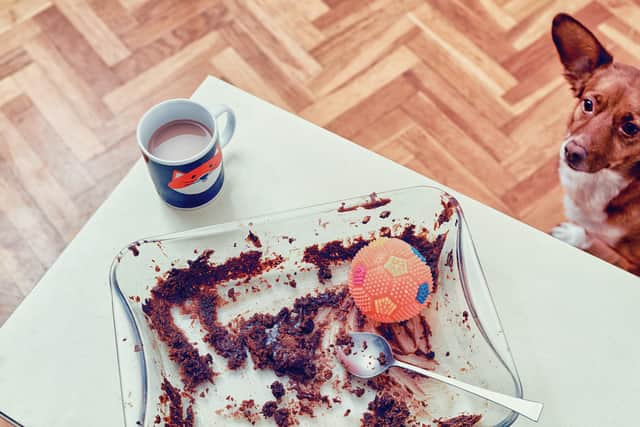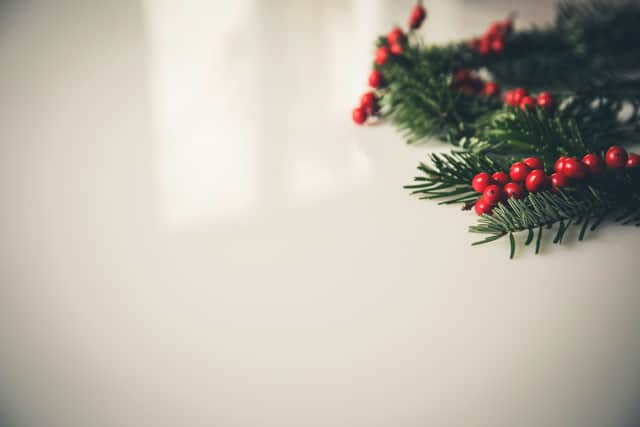Dog-friendly Christmas: Best ways to keep your pet safe including non-toxic trees & dog-safe dinners
This article contains affiliate links. We may earn a small commission on items purchased through this article, but that does not affect our editorial judgement.


An emergency trip to the vets is the last thing any dog-owner wants this Christmas so it's paramount to avoid any holiday hazards and possible puppy problems. There's a number of ways to keep your dog safe this festive season including tidying up tinsel, keeping seasonal plants out of reach and more .
We've teamed up with experts at TrustedHousesitters to help pet owners avoid any possible catastrophes this Christmas. Here's a list of dog-friendly reminders to keep your puppy in good health.
Advertisement
Hide AdAdvertisement
Hide AdDog-friendly Christmas trees
Fortunately for dog-owners, most Christmas trees aren't highly toxic to dogs. According to Blue Cross, pine, fir and spruce trees produce natural oils which can cause a mild stomach upset but the biggest danger is sharp pine needles that drop from the tree.
Pine needles can cause digestive issues and potentially puncture the digestive tract if ingested in large quantities, leading to serious complications. To avoid any catastrophe's, regularly sweep up fallen needles or create a barrier to avoid access to the tree and its fallen needles and if possible, consider a non-toxic, pet safe alternative such as artificial trees to minimise the risk.
To make sure your Christmas tree is totally puppy-proof, fairy lights should be placed with a curious dog in mind. Biting through electrical cords could be life-threatening, according to Petsathome.
Tidy up tinsel
According to experienced Veterinarian, Monika Šragová, if a pet digests anything 'stringy' it can result in a condition known as 'linear foreign body'. She said: "This happens when one end of the string wraps around the base of the tongue or anchors itself in the stomach, and the rest moves into the intestines."
Advertisement
Hide AdAdvertisement
Hide AdMs Šragová says the condition is 'life-threatening' and needs 'immediate surgical intervention'. So pet-owners should make sure they're not leaving tinsel, ribbons, or yarn lying around for pets to freely nibble on as it could not only be a serious choking hazard but have life-threatening consequences.


Keep Mistletoe away from dogs
Some seasonal plants can be extremely dangerous, so always supervise pets around them or, better yet, avoid them altogether. Dr. Megan Conrad, BVMS, a licensed vet, advises: “Many holiday plants can cause health problems for your pet, ranging from GI upset to heart issues and kidney failure. Definitely avoid mistletoe and holly, along with lilies, pine boughs and wreaths.”
While Christmas trees will be kinder to your dogs stomach, traditional Christmas plants are naturally toxic to animals and shouldn't be left lying around. The same goes for seasonal plants such as poinsettia, holly, ivy, potpourri.
Dog-safe Christmas dinners
Dogs love food, and at Christmas, it’s in abundance. However, this spells danger when it comes to pets eating something toxic. Meats such as turkey and ham have a high fat, sodium and salt content and should be avoided, along with roasting aromatics that are often used on meats.
Advertisement
Hide AdAdvertisement
Hide AdThe most common cause of a poorly pet around Christmas time is chocolate which contains highly-toxic theobromine. However, there's a host of other toxic foods we should avoid giving our dogs access to.
Dr. Helena Adalid Marin, a veterinarian, said: "Christmas is the time of the year when we receive the most poisoning cases. The main culprit is chocolate, which is very toxic to dogs. Seafood and sauces with onion and garlic should also be avoided, not to mention letting them taste champagne."


She added: “We know how much pets are attracted to food, after all, their sense of smell is 10K - 100K times more receptive than humans. Make very sure you dispose of leftover food safely.
According to the RSPCA, other toxic foods which dogs should avoid this Christmas include mince pies, Christmas pudding, alcohol, and bones from leftover meat. Veterinary surgeon, Dr. Linda Simon, further explains, “While it may be tempting to toss the turkey carcass to our dog, bones should not be given. They can cause tooth fractures, gut obstructions, or severe constipation.”
Advertisement
Hide AdAdvertisement
Hide AdCalming Christmas anxiety
Christmas can be a pretty anxious and overstimulating time for humans, and for animals it can be even more confusing and stressful. Angela Laws, a sitter with 14 years of experience, said: “If your pet is anxious or struggling with the hustle and bustle of the season, ensure you keep to their usual routine, exercise them regularly, and have a safe space at home where they can retreat if the festivities become too much for them.”
Other calming techniques to relieve your pets stress this festive season includes distracting them with toys and treats, playing them calming music, making sure they're hydrated and giving them lots of cuddles.
Comment Guidelines
National World encourages reader discussion on our stories. User feedback, insights and back-and-forth exchanges add a rich layer of context to reporting. Please review our Community Guidelines before commenting.
